When was the last time you visited your doctor? Did you go for a routine annual physical, or for an emergency? Did you get a simple blood test or have surgery?
Just like with trips to the doctor, there are a wide variety of reasons why you might seek out a financial planner to work with. It could be a routine visit- everything seems to be going reasonably well and you just want a second opinion to make sure you’re not missing anything vital. It could be a check-up visit- you want to send your kids off to college in five or ten years but aren’t sure the best way to go about it. It could be an emergency visit- digging out of overwhelming debt, or selling your business, or getting a divorce, or getting an inheritance.
There is a certain amount of hesitation when many people think about talking to a financial planner. The idea of baring your financial soul to another human being can be scary. Some of us have a hard time asking for help, even when we know we need it. If you are considering working with a financial planner – because you’ve experienced some significant life changes, or because you need some advice about a particular situation, or for some other reason – we’d like to give you a little heads up about what to expect.
Choosing an Advisor
One of the most important decisions you make in your financial planning journey will come right after you decide to seek professional guidance: which financial planner should you work with? Consider focusing on four key areas during your search:
1. Qualifications & Experience
Check the qualifications and experience level of any prospective advisor before working with them. While certifications and professional designations are not everything, advisors with legitimate designations have demonstrated a desire to go the extra mile in their professional training with an advanced commitment. Most of these designations require candidates to demonstrate competence in a range of topics and meet high ethical and professional standards.
Key designations to look for: CFP®, CPA, CFA, ChFC, CIMA®, CPWA®, or JD (law degree)
You can also check an advisor’s credentials and complaint history using FINRA’s BrokerCheck or the SEC’s Investment Advisor Search. If you are having a hard time finding an experienced advisor, the CFP® Board’s planner search is a great place to start.
In addition to designations, you want to be sure that the firm’s leaders and key decision makers are seasoned professionals and any advisor that you work with personally should have at least 5 years of experience.
2. Typical Client Type
This is an important and often overlooked issue. What you are looking for is a planner that works with clients with similar situations to your own. If you are preparing for retirement, you should be working with an advisor that often works with retirees. If you are a business owner, you want to know that the advisor has other entrepreneurial clients, and you may also want to work with an advisor that is a business owner themselves. Employees of large national firms have never had to worry about making payroll or paying rent. The key takeaway is: work with someone that understands your situation.
Additionally, ask the advisor about account sizes if you are seeking investment management services; if your account is significantly smaller than most of their clients, you may not get the level of service and attention you are seeking. If your account is substantially larger than their average clients’ portfolios, ask more questions to ensure that they are capable of handling your assets.
3. Compensation
It’s essential to understand exactly how an advisor makes money and reluctance to discuss compensation is a big red flag. Typically, advisors earn a living through management fees, flat rate fees, or commissions for their services. There are many reasons why an advisor would choose one compensation plan over another and there are advantages and disadvantages to each system.
a. Hourly Fees
Some planners may charge fees on an hourly basis for their services. This arrangement is often more appropriate for financial planning as it relates to a specific need such as paying down debt or financial counseling related to a divorce. Be sure to get an estimate of the expected time required for your situation to understand the all-in cost.
b. Retainer or Flat Fees
Financial planners are often compensated by retainer fees or a flat dollar fee for their services. These fees can be one-time, monthly, quarterly, or annual and can be for ongoing comprehensive advice or limited guidance for one particular issue. This arrangement is transparent and the fees are often based on complexity and/or net worth, but be sure to understand what inputs were used to determine your proposed fee.
c. Asset-based Fees
Financial planners that also manage investments on behalf of their clients often charge asset-based fees, also known as fees for assets under management. In this arrangement, the advisor charges an annual percentage fee – say 1.25% of assets – that is usually assessed quarterly (in this example, 0.3125% would be deducted from the account on a quarterly basis). This option allows both the client and advisor to mutually participate in investment gains and losses. Most advisors do not charge a separate financial planning fee in addition to an asset-based fee, so be sure to understand what services the asset-based fee includes. Paying full-service advisory fees for solely investment management with no additional financial planning services is unnecessary.
d. Commissions
In this arrangement, advisors are compensated on a transactional basis for trades or the purchase of financial products. Perhaps the black sheep of the advisor compensation world, commissions can sometimes be appropriate for clients depending on their unique situation. Particularly, if you are in need of a recommendation and subsequent implementation for something such as an education fund, life insurance, or annuity, a commission-based arrangement might work for you since most of the work is done up front with less – and sometimes no – need for ongoing management. Think of this like buying a home: after the purchase, you have no need or expectation for ongoing services from your realtor, which is why you pay a commission. The same can be said for certain financial products or investments: if there is no need for ongoing management, do not pay for it!
As you can see, there are multiple ways that an advisor can be compensated. The important thing is to always understand how you will be paying for services and how that may affect the advice you will receive.
4. Communication & Services
Take some time to think about the client experience you would like to receive. How often you would like to hear from your advisor? It’s important to establish the advisor’s typical schedule of contact so you can decide if it meets your needs. It’s also critical to know in advance how much contact you can expect during inevitable market declines and whether the advisor will be proactive in keeping you informed. Determine how the advisor typically keeps in touch with clients; if you prefer online engagement and e-mail communication, be sure the advisor has the technology in place to meet your needs.
How to Prepare
There is a certain amount of backstory that a professional will need to know to understand the situation clearly and begin to come up with a diagnosis. A doctor is required to review medical history, prescriptions, and current health before they can move forward with a plan of care. As financial professionals, we need to understand the entire financial picture before we can begin to discuss strategies. The more you share, the better the planner can do their job. To better prepare for your first meeting, consider the following:
5. Organize Your Data
Organizing your data and financial information is imperative to jump start a financial plan. Ideally, your prospective advisor has either sent you a data gathering questionnaire or list to work on ahead of time, or has made it clear that your first meeting will be focused on getting your data organized together. Regardless of how your advisor gathers data, whether it is homework ahead of time or an open-book quiz during the first meeting, it is important that they have a clear process. A planner with a repeatable process starting at step one is more likely going to be well-organized and process-driven from all angles of the financial relationship.
6. Provide Documents
You should plan to provide your planner with all pertinent documents. Particularly, it is helpful to provide the following documents ahead of your first meeting. If you are uncomfortable sharing these documents prior to the first engagement, you should bring them with you to the first meeting for reference.
a. Monthly or quarterly investment statements for all accounts
b. 401(k) or retirement statements
c. Pertinent insurance and annuity statements
d. Pension and Social Security estimates
e. 2 years of tax returns
f. Estate planning documents – wills, trusts, etc.
g. Simple net worth information:
-
-
Bank account balances
-
Value and titling of real estate assets
-
Notable personal assets (farm equipment, jewelry, gun collection, etc.)
-
Business valuations or estimated value
-
All corresponding liabilities / debt
-
While much of the information above may be uncovered through the data gathering questionnaire, it may be easier for you to provide documents or prior net worth / balance sheet statements.
7. Be Open & Honest
For some families, financial topics are taboo, so it may be uncomfortable to openly talk about some financial issues. But it is important to consider that anything you might be reluctant to discuss has most likely been dealt with by your prospective advisor in the past. Have an estranged relationship with a child? Think someone in the household might have a spending problem? You need to be willing to discuss these issues as they have a major impact on financial planning scenarios. You don’t need to be ready to tell your life story at the beginning of the client relationship, but anything that is concerning to you should be shared with your planner to ensure they are aware of any extenuating circumstances – and you should never be embarrassed. This is possibly one of the most important things to be comfortable with when visiting with a prospective planner – do you see yourself having an authentic relationship that allows for difficult conversations; are they a good personal fit?
Setting Expectations
It has been said that happiness equals reality minus expectations. In other words, if expectations aren’t clear from the get-go, you may find yourself unhappy with the planning process. At the onset of working with a planner they should adequately assess your needs, determine the scope of your engagement, and begin carrying out your financial plan.
8. Assessing Your Needs
The planner will ask you about your initial reason for reaching out. What problem or situation are you wanting help with? They will find out more about you and your current situation: your family, your work, what you own and what you owe, and any other relevant details.
9. Establishing the Scope
Through conversation, the advisor will begin to discuss how they can help with your needs as well as other potential blind spots that you may not be considering. Once the planner feels confident about understanding your situation, they will be able to discuss what, if anything, they can do to help with the problem or situation. That help might be very limited in scope: perhaps you want help in funding your kids’ college education and that’s it. The planner will work on that aspect of your financial life and put little or no focus on your retirement planning, specific investment choices, or your need for term life insurance. Alternatively, you might want a full spectrum of advice covering virtually all aspects of your current situation and future plans.
10. Determining a Plan of Action
If you and the planner agree to work together, you will enter into an agreement with the planner and their firm. This agreement will outline what services will be rendered, how long the services will last, how the advisor will be compensated, and each party’s responsibilities. `Your planning engagement can be a one-time event, ongoing planning, or limited to a specific time frame (one year, typically). When agreeing on services, be sure you fully understand the compensation as discussed above.
From here, the planner should set expectations for next steps and milestones to begin working toward, as well as explaining the client onboarding process and any administrative issues related to becoming a new client.
Finally, depending on the needs of the situation, the planner may want to refer you to outside experts (attorney, CPA, insurance agent, elder law specialist, etc.). In general, any outside expert should be someone the planner has extensive history with – be sure to ask!
Summary
A true financial advisor will have your best interests in mind at all times and will consider not only the present reality but also the future consequences of actions taken today. If you are considering working with a financial advisor – for an emergency room visit or a normal checkup – consider the type of advisor that fits your personality and situation, be willing to be open and honest with them, and make sure to set good expectations prior to doing business with them.







